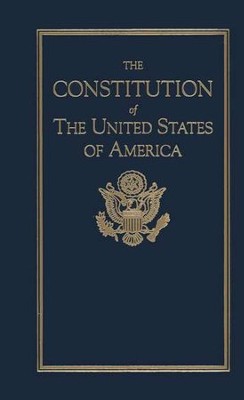When researching constitutional law, it is essential to rely on primary sources to understand the Constitution's intent, context, and text. Here are some key primary sources for constitutional law:
- The Constitution of the United States: This is the supreme law of the United States, which outlines the structure of the federal government, its powers, and the rights of its citizens. It is the foundation of constitutional law in the U.S.
- The Federalist Papers: A series of 85 essays written by Alexander Hamilton, James Madison, and John Jay advocating for the ratification of the U.S. Constitution. These papers provide valuable insights into the framers' intent and interpretation of the Constitution.
- The Anti-Federalist Papers: A collection of writings by various authors who opposed the ratification of the U.S. Constitution. They offer contrasting perspectives and arguments regarding the structure and scope of federal power.
- Supreme Court Decisions: Opinions issued by the U.S. Supreme Court serve as binding interpretations of the Constitution. Landmark cases like Marbury v. Madison, Brown v. Board of Education, and Roe v. Wade are examples of decisions that have significantly shaped constitutional law.
- Constitutional Amendments: Amendments to the U.S. Constitution represent the evolving principles and values of the nation. For example, the Bill of Rights (Amendments 1-10) guarantees fundamental rights such as freedom of speech, religion, and due process.
- State Constitutions: Each state in the U.S. has its own constitution that governs state-specific matters. These documents provide insights into the structure and functioning of state governments and often grant additional rights and protections beyond those in the U.S. Constitution.
- Constitutional Conventions and Debates: The records and transcripts from the constitutional conventions and debates, such as the Constitutional Convention of 1787, provide valuable historical context and insights into the framers' discussions and compromises.
- Congressional Records: The debates and discussions in the U.S. Congress when proposing and ratifying amendments or passing significant legislation related to the Constitution are important primary sources.
- Presidential Documents: Executive orders and presidential proclamations may involve constitutional matters, and their records can be significant primary sources for understanding the president's interpretation and application of the Constitution.
- Founding Documents: Other historical documents related to the nation's founding, such as the Declaration of Independence, Articles of Confederation, and state constitutions before the U.S. Constitution, can provide valuable context and insights.
When conducting research on constitutional law, consulting these primary sources will help ensure a comprehensive understanding of the constitutional framework and the evolution of constitutional principles over time.

 The Constitution of the United States of America by Congressional Research Service, Library of Congress
The Constitution of the United States of America by Congressional Research Service, Library of Congress Declaration of Independence by Books of American Wisdom
Declaration of Independence by Books of American Wisdom